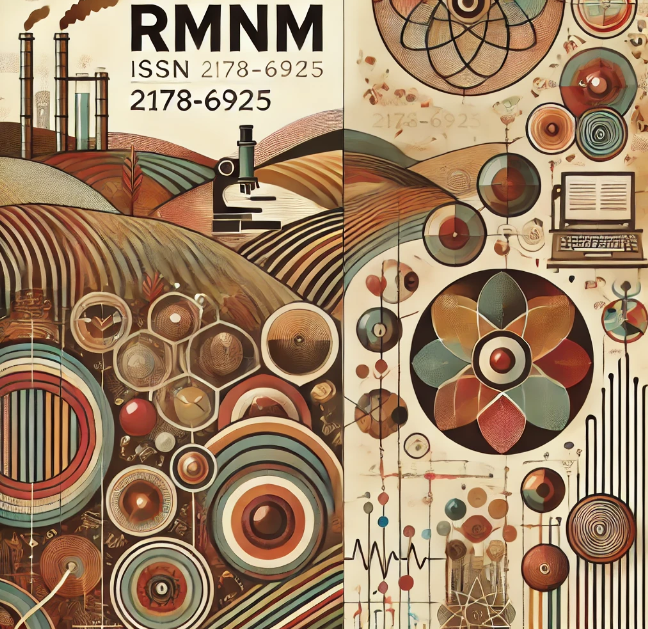THE MAIN CHALLENGES OF SCHOOL MANAGEMENT IN RURAL SCHOOLS IN THE ZUMBI DOS PALMARES SETTLEMENT IN MARI-PB
DOI:
https://doi.org/10.61164/rmnm.v9i1.2876Keywords:
Educação do campo, Gestor escolar, Relação escola comunidade, Gestão democrática.Abstract
This article discusses the role of the school manager in a rural school located in the city of Marí-PB. It discusses the challenges faced by the institution in terms of the process of teaching and learning students in a meaningful way. It presents the importance of democratic management for the development of the activities proposed by the school and analyzes the successful relationship that exists between the school, family and community in favor of the learning of students who live in the countryside. The research identifies some of the causes put forward by the public administration in relation to the closure of rural schools and indicates possible solutions proposed by the public authorities to direct students to other municipal institutions. The general aim of this research is to analyze the main challenges faced by school management in a school located in the countryside of Mari-PB. The specific objectives are to reflect on the importance of the school in the community; to understand the competencies of the school manager; and to recognize the activities developed in democratic management. The methodology for this research was qualitative, carried out by means of an audio-recorded interview with the school manager, the assistant manager and the president of the school council of the Zumbi dos Palmares Municipal School for Early Childhood Education and Primary Education. We used the school's PPP (Political Pedagogical Project) to guide our study, as well as carrying out bibliographical research based on authors, laws and decrees that discuss this issue, such as: Ausubel (2003); Brasil (2007; 2013; 2014); Luck (2005; 2011); Muzukami (2002); Saviani (1996), among others. It was observed in this research that the school manager plays a fundamental leadership role in dialoguing with the community, encouraging students to participate effectively in school events and valuing the learning that takes place in their context. Democratic management makes it possible for the school and the community to work closely together to strengthen the emotional ties between students and their families in the context in which they live.
References
AUSUBEL, David P. Aquisição e retenção de conhecimentos: Uma perspectiva cognitiva. 1. ed. Rio de Janeiro: Ed. Plátano Edições Técnicas, 2003.
BRASIL. Decreto 7.352 de 4/11/2010 Dispõe sobre a política de educação do campo e o Programa Nacional de Educação na Reforma Agrária - PRONERA. BRASIL Portaria Nº 579, de 2 de julho de 2013 Institui a Escola da Terra. DOU Nº 126/2013, p.11).
BRASIL. Lei n. 12.960, de 27 de março de 2014. Altera a Lei n. 9.394, de 20 de dezembro de 1996, que estabelece as diretrizes e bases da educação nacional, para fazer constar a exigência de manifestação de órgão normativo do sistema de ensino para o fechamento de escolas do campo, indígenas e quilombolas. Diário Oficial da União: Brasília, Distrito Federal, 28 mar. 2014.
BRASIL. Ministério da Educação. SECADI. Educação do Campo: Marcos Normativos. Resoluções e Pareceres do Conselho Nacional de Educação para a Educação do Campo.
BRASIL. Ministério da Educação. Instituto Nacional de Estudos e Pesquisas Educacionais (Inep). Panorama da educação do campo. Brasília, DF: MEC/Inep, 2007.
I Conferência Nacional Por uma Educação Básica do Campo. Texto Base. Brasília DF, 1998.
LÜCK, Heloísa. A gestão participativa na escola. Petrópolis, RJ. Editora Vozes, 2011.
LÜCK, Heloísa. FREITAS, Kátia Siqueira de. GIRLING, Robert. KEITH, Sherry. A Escola Participativa – O Trabalho do Gestor Escolar. Editora Vozes, 2005.
MIZUKAMI, Maria da Graça Nicoletti, ET AL. Escola e a aprendizagem da docência: processos de investigação e formação. São Carlos: EdUFSCar, 2002.
SAVIANI, Dermeval. Saberes implicados na formação do educador. In: Formação do educador: dever do Estado, tarefa da Universidade. BICUDO, M. A. V.; SILVA JUNIOR, C. A da. (Orgs.), VI. 1. São Paulo: Editora da Universidade Estadual Paulista, 1996.
Downloads
Published
How to Cite
Issue
Section
License
Copyright (c) 2024 Revista Multidisciplinar do Nordeste Mineiro

This work is licensed under a Creative Commons Attribution-NonCommercial-ShareAlike 4.0 International License.




